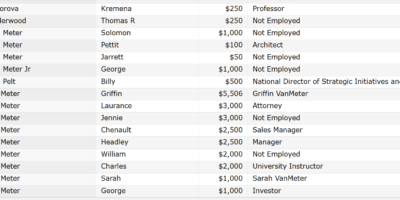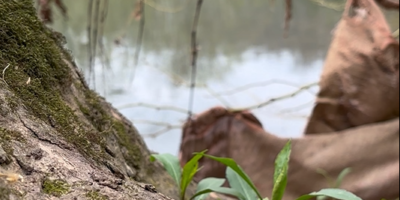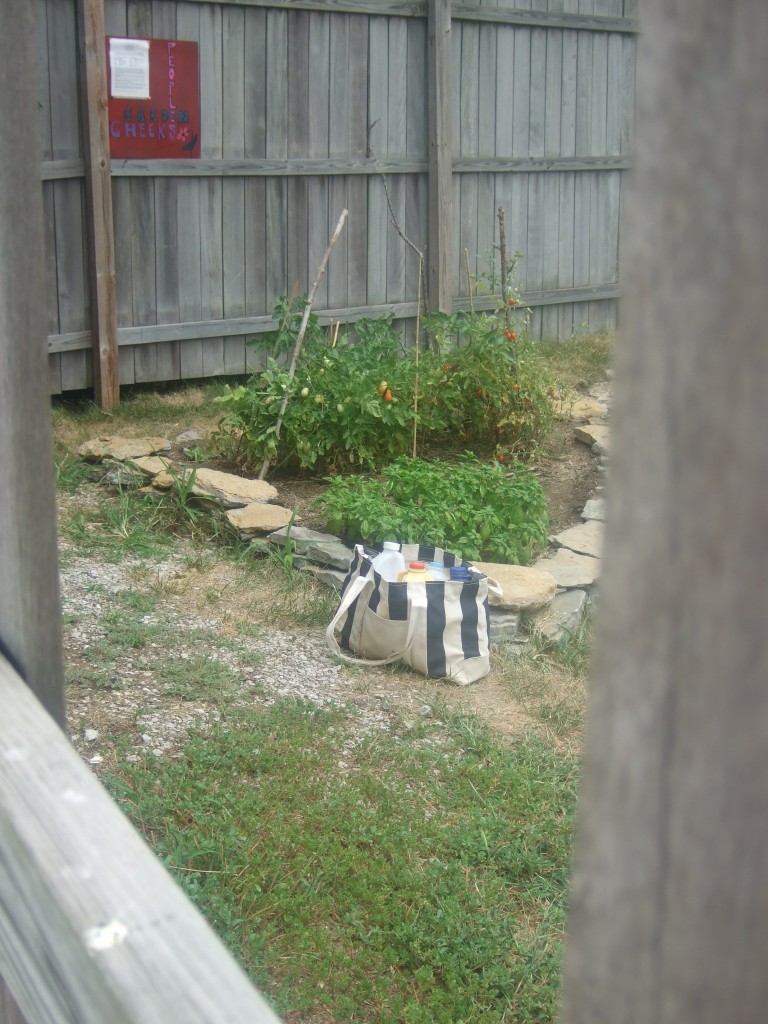From the Occupied Lexington Herald
Sharecropping with the 99%
Occupied Lexington-Herald News
A garden is an honest investment. Each year the tiniest of seeds sprout and grow diverse and bountiful products. Yields, while variable, nevertheless offer steady rates of return. For the most part, in the summer we can expect a Halladay Mortgage Lifter to produce large pink fleshy tomatoes, or Kentucky Half-Runner vines to tangle and produce more beans than we know what to do with. In the spring and fall, we can count on the arugula’s spicy leaves to rise from, and the Cosmic Purple carrot to slowly root itself into, the soil.
As investments go, gardens offer an alternative to the Wall Street/capitalist model of unlimited growth (known in the real world as cancerous growth). Garden investments remind us that while all currency, all seeds, experience bursts of growth and steady rates of production, they all also have natural periods of decline. We can expect to be overwhelmed with excess in the summer, to plan on scarcity in the winter, and to start the entire cycle over nearly from scratch the next spring.
Victory Gardens
There is a recent national history of people collecting together to plow and cultivate common lands for the production of food. Sixty years ago while the United States revved up its manufacturing plants to mobilize for war in Europe, national leaders called upon American citizens to make their own individual investments in the war effort. Part of this involved consumption—the buying of war bonds, the rationing of gas or rubber or tin products across the country.
But a significant part of national investment into the war effort involved production. In countless cities and towns throughout the country, including Lexington, citizens joined together to create what were called Victory Gardens. Encouraged by their leaders, they transformed unused green space—tucked into parks, open fields or the undeveloped ends of dead end suburban streets—into community gardens used to grow vegetables for domestic consumption. Young neighborhood kids paired with experienced older farmers and gardeners. Others organized canning groups to process produce grown from the gardens; still others distributed the excess.
The investments paid off. Not only did numbers of American citizens “buy into” the war effort through their investments in the land, but so too did Americans get fed. At the height of the Victory Gardening movement in the mid-1940s, somewhere close to 40% of domestic consumption of vegetables came from citizen-produced Victory Gardens.
Winter homework
As Occupations, here and elsewhere, dig in for winter, it is time to begin preparations for the spring. We do not know what specifically the future will hold, but it seems clear that whatever lies ahead, food will be much needed.
For one, occupiers need to eat. Those who are out in the public organizing have less time to provide themselves necessities like food and shelter. Healthy, fresh food operates as a sort of currency, whereby entrenched occupiers can trade their time standing on the street for the ability to eat wholesome tomatoes or plums or lamb’s quarter. Eating in this instance is not simply an agricultural act, tying us to the land and communities from where our food grows, but also an act of solidarity, a transfer of labor and love between two equals working within the same struggle. Growing food for distribution and consumption at Occupied sites is thus an important way to contribute without being present on the streets.
But food isn’t just for Occupiers tramping downtown streets. Properly used, food also stimulates community interaction. Whether given away, as at a Food Not Bombs meal; bartered at swaps; or sold at markets, food attracts people and increases activity. Its value is in its universality. Everyone gathers around food; it unites us, makes us human. As Occupations continue to decentralize into our neighborhoods, as they morph into more regular public spaces of humanly scaled activities, the production and distribution of food will play an important role in establishing legitimacy and community acceptance.
Occupy Gardens and Free Markets
Occupations need not include human occupation. While the Occupy Wall Street movement has been centrally concerned with re-asserting the right of citizens to gather together in public spaces, any number of places in our communities have been locked away, placed off limits and out of productive use. Front yards grow grass; empty lots grow weeds; private properties and churches lock away their land for members of their flock; city parks water golf courses; rural parks are left to fallow. Occupy Gardens can support the larger assertion of people’s right to common lands by employing our veggies to do the occupying for us.
Lexington citizens, as well as citizens throughout the world, should begin planning their own Occupy Gardens. Start looking for unused spaces that could be turned into small or large garden sites. These might include imagining how to plant container gardens, digging up front yards, preparing unused green space for spring cultivation, petitioning city parks, or claiming unused city or suburban lots. Work together, band with friends or community members. Let our needs direct our occupational locations. And in the spring, we can use these seeded investments as raw products for developing our own Occupy markets, places where free markets can truly be allowed to flourish.
This takes winter planning. So start sowing the seeds for your Occupy Garden and join the fight to re-order our world.
If you live near Lexington, the Libertarian Municipalism group meets on Mondays at 5:30 at JP’s Plaza (Main+Esplanade). The group is working to select and develop market sites around Lexington. Your food, body, intellect and energy are encouraged. Drop by.





Jacob Kearey-Moreland
Great article Occupy Lexington! We are working on our own Radish Revolution here at Occupy Gardens Toronto, and trying to get other occupied cities to join the moss radish action ever. We are mobilizing a militia of guerilla gardeners and plan to march by the thousands come spring time with shovels, seed bombs, plants, compost and plant food all over the city. Then tend to the gardens as a community and share the produce with everyone who is hungry.
Food is an incredibly powerful tool for bringing people together and for growing positive change.
I would love to hear how your Occupy Gardens adventure goes..
Peas for now!
Jacob Kearey-Moreland & Occupy Gardens for World Peas